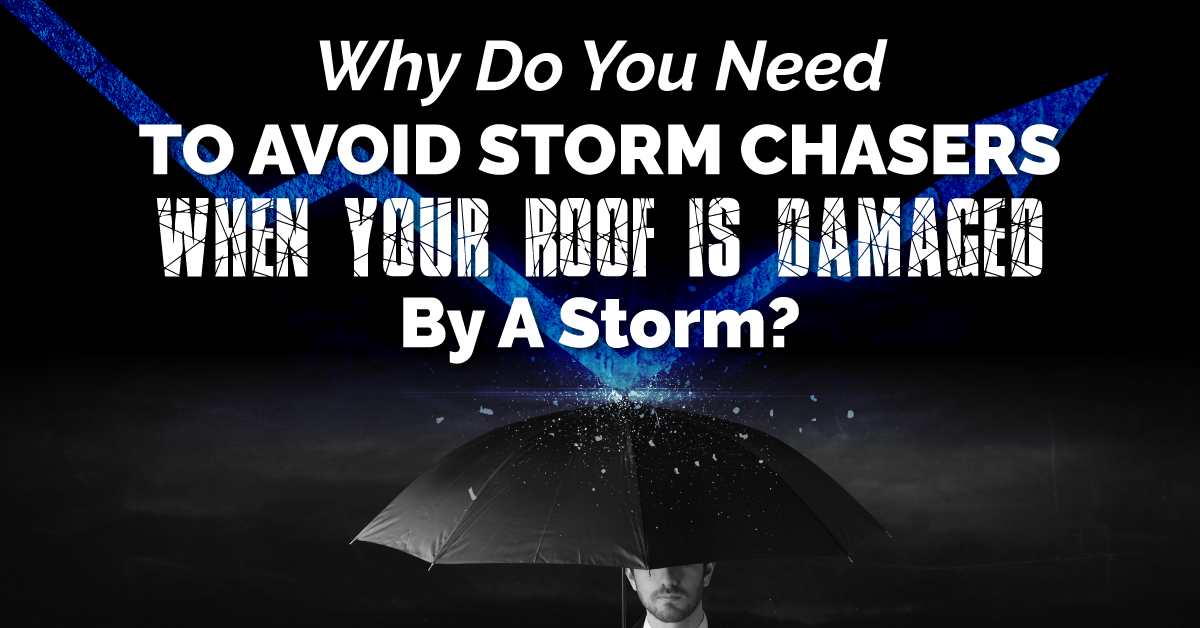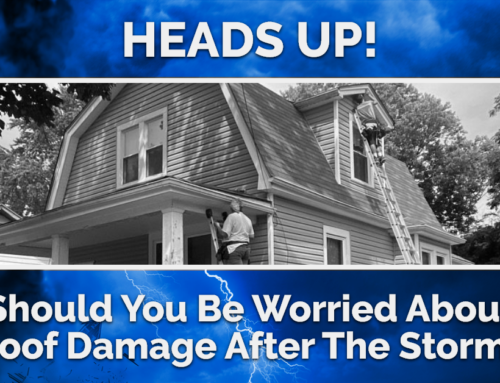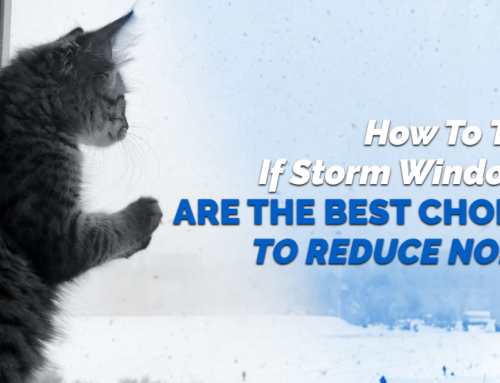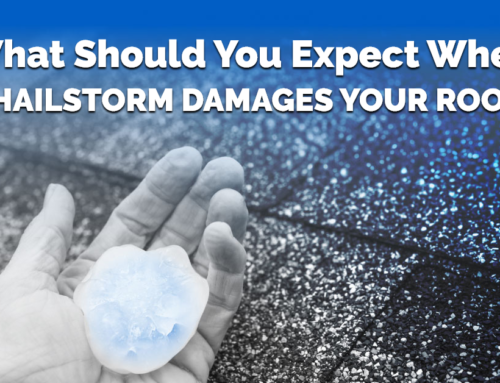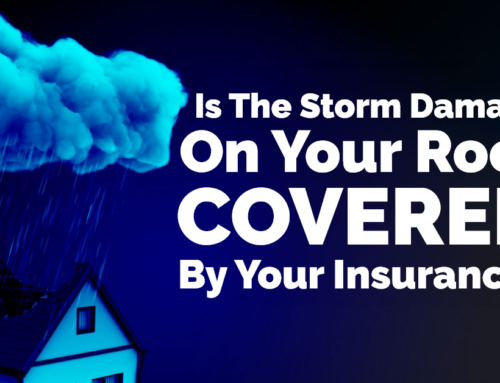Big storms can cause substantial roof damage. High winds and driving rain can lift shingles, peel back metal flashing, and tear gutters straight off the eaves.
Sometimes after a storm rolls through town, roofing companies will approach you with offers to replace or repair your roof. These companies are known as storm chasers. While working with them may initially seem convenient, it’s not usually the best approach. Here’s a look at the dark side of hiring storm chasers — and why you should work with a local roofing company instead.
Storm Damage Repair
Understanding the basics of storm damage repair will help you understand how storm chasers operate.
Every repair process should start with a thorough evaluation of your roof. Your roofer should climb up closely inspect the entire surface, all flashing, gutters, vents, and other penetrations. Not all roof damage is obvious from the ground. For example, you may think you only have a few missing shingles, when in fact, you also have missing flashing or more.
Based on their assessment, your roofer will offer you an estimate for the necessary repairs. The cost of storm damage repairs varies greatly depending on the extent of the damage. However, it is not inherently more expensive than repairing roof damage due to other causes.
Storm chasers may try to convince you they offer specialized repairs which your ordinary roofer can’t perform, but this is not the case. Any reputable roofing company should be able to repair storm damage. It is not a specialized skill only storm-chasers possess.
They may also try to tell you your local roofer will over-charge for storm-related repairs. This isn’t true, either. Storm chasers tend to be the ones over-charging and performing repairs that aren’t needed. They may also fail to give a detailed estimate and surprise you with a higher price once they “discover” additional damage.
Recognizing Storm Chasers
So how do you tell whether a particular roofing company is a storm-chaser? There are a couple of key signs to look for.
1. They contact you.
If a roofer knocks on your door, leaves a pamphlet in your mailbox, or calls you on the phone after a storm, this is a sign they’re a storm chaser. They are hoping you’ll say, “yes” to their proposed services without taking the time to shop around.
2. They’re not local.
Most storm-chasers are out-of-town companies. They come into an area for work after there has been a big storm. Sometimes, they may tell you they are partnering with a local company to make themselves sound more familiar.
3. They want you to sign an AOB.
An AOB, or Assignment of Benefits, authorizes a company to make repair decisions on your behalf. The roofer can then collect funds directly from your insurance company. Roofing companies who seem insistent you sign an AOB immediately are typically storm chasers.
Avoiding Storm Chasers
To avoid being over-sold and over-billed by storm chasers, don’t wait for someone to knock on your door. Instead, contact a local roofing company yourself.
When possible, start working with a local roofer before your roof suffers storm damage. This way, when you do wake up to hail damage or missing shingles, you know who to call. Having your roof inspected annually is an excellent way to start building rapport with a roofer. Plus, this allows them to get to know your roof ahead of time. They’ll then be better able to assess the nature of any storm damage.
Make sure you hire a local Cincinnati roofing company who does not partner with out-of-state contractors. These storm-chasing contractors can be impossible to get ahold after the repairs are made. When you work with a local company, you know who to reach out to with any future problems or questions.
Why Local Roofers Are Best
Local roofers know and understand the weather in your area. A storm chaser who comes into town for a few weeks after a storm may not correctly account for the local weather when making repairs.
Local roofers can also come back if additional repairs are needed later. Storm chasers don’t plan on coming back. They are likely to recommend a more expensive roof replacement than is needed. If you have any trouble with your repairs or replacement roof, you’ll struggle to contact them.
After your storm, a local roofing company is best qualified to assess your roof damage and make any needed repairs. So steer clear of storm chasers, and contact Titan Siding and Roofing for your roofing needs in the greater Cincinnati area.

